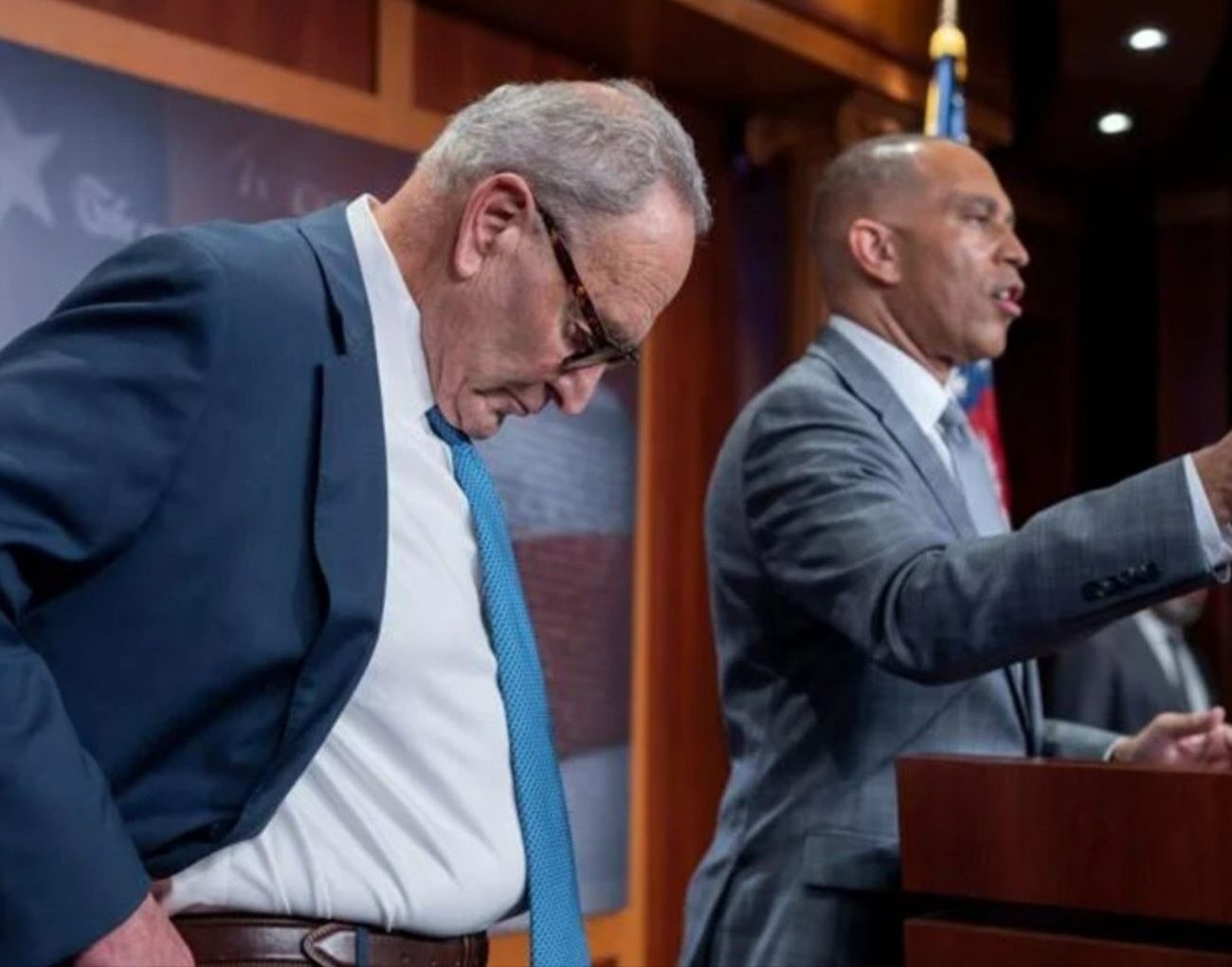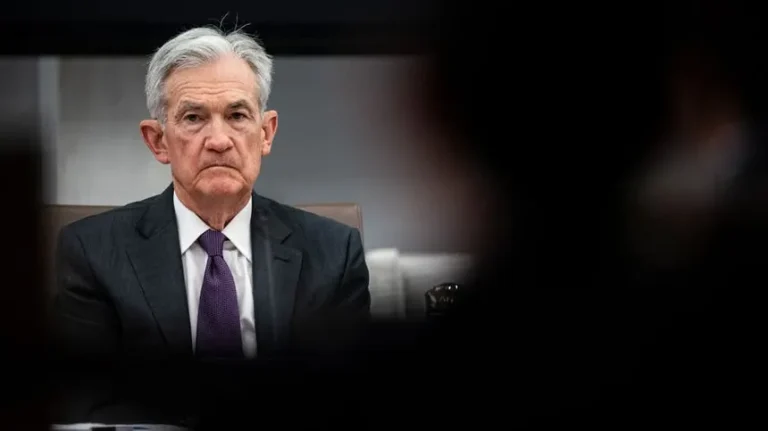WASHINGTON — After weeks of gridlock and rising public frustration, Senate Minority Leader Chuck Schumer announced Wednesday that Democrats will support a Republican-led bill ensuring continued food assistance for millions of low-income Americans as the government shutdown enters its fourth week.
The move marks a rare moment of bipartisan convergence — and a notable concession — as Democrats, under increasing political pressure, rally behind Sen. Josh Hawley’s “Keep SNAP Funded Act of 2025.”
The legislation guarantees that benefits under the Supplemental Nutrition Assistance Program (SNAP) will continue to be distributed during the shutdown, which has left multiple federal agencies paralyzed and millions of Americans uncertain about their next meal.
“Today, tomorrow, if [Senate Majority Leader] John Thune would put it on the floor, it would pass overwhelmingly,” Schumer said at a press conference, according to The Hill.
A Crack in the Democratic Wall
For nearly a month, Democrats have resisted piecemeal funding bills proposed by Republicans, insisting that Congress must reopen the government in full before addressing individual programs.
But as the shutdown begins to impact SNAP recipients, political pressure has intensified — particularly from governors, advocacy groups, and state agencies warning of a looming food crisis.
The U.S. Department of Agriculture (USDA), which administers SNAP, has cautioned that millions could lose access to benefits as soon as Saturday if Congress fails to act.
Hawley’s bill — which would fund the program until the government fully reopens — has drawn ten GOP co-sponsors, including Sens. James Lankford (OK), Lisa Murkowski (AK), Susan Collins (ME), Marsha Blackburn (TN), Bernie Moreno (OH), Kevin Cramer (ND), Bill Cassidy (LA), Katie Britt (AL), Jon Husted (OH), and John Cornyn (TX).
The Political Standoff
Majority Leader John Thune has maintained that Democrats could end the shutdown immediately by voting for a House-passed stopgap bill that temporarily extends existing spending levels.
However, Democrats have accused Republicans of inserting policy riders and funding limitations targeting administration priorities — including climate programs and immigration policies.
In response to Hawley’s bill, Sen. Ben Ray Luján (D-NM) introduced a competing measure Wednesday that would fund both SNAP and the Special Supplemental Nutrition Program for Women, Infants, and Children (WIC).
Every Senate Democrat has signed onto the proposal, titled the Keep SNAP and WIC Funded Act of 2025.
“We cannot allow families to go hungry or babies to go without formula because of Washington’s dysfunction,” Luján said in a statement.
The Stakes: Millions at Risk
According to USDA data, roughly 41.7 million Americans received SNAP benefits each month in fiscal year 2024, at a total cost of nearly $100 billion — averaging $187 per recipient monthly.
During the same period, WIC assisted 6.7 million people, covering about 41 percent of all U.S. infants and costing $7.2 billion.
Both programs are critical for low-income households, and recipients often qualify for both simultaneously.
Yet, USDA officials have stated they will not tap into $5 billion in emergency contingency funds that had been set aside for natural disasters.
“Those funds are reserved for unforeseen crises, not to continue operations during a lapse in government funding,” the department said this week.
Agriculture Secretary Brooke Rollins reaffirmed that position Tuesday, telling CNN that USDA “cannot legally use the contingency funds” to issue November benefits, which are expected to cost about $9.2 billion nationwide.
https://twitter.com/ErinMMaguire/status/1983621582418538715
Tensions Boil on the Senate Floor
The partisan tension boiled over Wednesday when Sen. Thune accused Democrats of repeatedly obstructing efforts to reopen the government.
“We tried to do that 13 times! You voted ‘no’ 13 times,” Thune said during a heated exchange with Sen. Luján.
“You all just figured out, 29 days in, that there might be some consequences,” Thune added.
Democrats fired back, arguing that the Republican strategy has been to “pick winners and losers” by selectively funding popular programs while keeping others shuttered.
“We are not going to play political games with the American people’s livelihoods,” Schumer countered. “But we also will not let children go hungry.”
Private Negotiations Intensify
Despite the fiery public exchanges, signs of progress have begun to emerge behind the scenes.
Sources familiar with the talks told Axios that private discussions between Senate leaders have “ticked up significantly” in recent days.
“It will happen pretty soon,” Thune said when asked about the timeline for formal negotiations.
Democratic Sen. Chris Coons (DE) confirmed that bipartisan conversations are underway:
“There are more senators, both Republicans and Democrats, talking to each other about what it would take. The question now is, what does the path forward look like?”
Appropriations Chair Susan Collins (R-ME) echoed that sentiment, saying Democrats are beginning to recognize that their leverage depends on cooperation.
“If they want to retain the ability to influence spending decisions, it means we have to pass appropriations,” Collins said.
Economic and Political Fallout
The ongoing shutdown — now the fourth week — has already disrupted federal paychecks, delayed key regulatory actions, and caused uncertainty across the economy.
Analysts warn that a prolonged impasse could dampen consumer spending, delay food aid, and hurt low-income families first.
Political strategists note that Democrats’ support for Hawley’s bill may signal a tactical pivot to shield themselves from blame — particularly as the SNAP funding lapse becomes a public flashpoint.
“If benefits stop, the political damage will be severe,” said one Capitol Hill aide familiar with the negotiations. “Nobody wants to be the party that let people go hungry.”
The Bigger Picture
Both sides are seeking to frame their next moves as acts of responsibility.
Republicans argue that their targeted funding bills prove they are trying to govern, while Democrats say they are defending the integrity of the budgeting process.
But as the shutdown’s fourth week drags on, public patience is wearing thin, and lawmakers on both sides are under increasing pressure to strike a deal.
For now, Schumer’s decision to support Hawley’s SNAP bill marks the first significant break in party discipline — and perhaps the first step toward ending the standoff.

James Jenkins is a celebrated Pulitzer Prize-winning author whose work has reshaped the way readers think about social justice and human rights in America. Raised in Atlanta, Georgia, James grew up in a community that instilled in him both resilience and a strong sense of responsibility toward others. After studying political science and creative writing at Howard University, he worked as a journalist covering civil rights issues before dedicating himself fully to fiction. His novels are known for their sharp, empathetic portraits of marginalized communities and for weaving personal stories with broader political realities. Jenkins’s breakout novel, Shadows of Freedom, won national acclaim for its unflinching look at systemic inequality, while his more recent works explore themes of identity, resilience, and the fight for dignity in the face of oppression. Beyond his novels, James is an active public speaker, lecturing at universities and participating in nonprofit initiatives that support literacy and community empowerment. He believes that storytelling is a way to preserve history and inspire change. When not writing, James enjoys jazz music, mentoring young writers, and traveling with his family to explore cultures and stories around the world.









